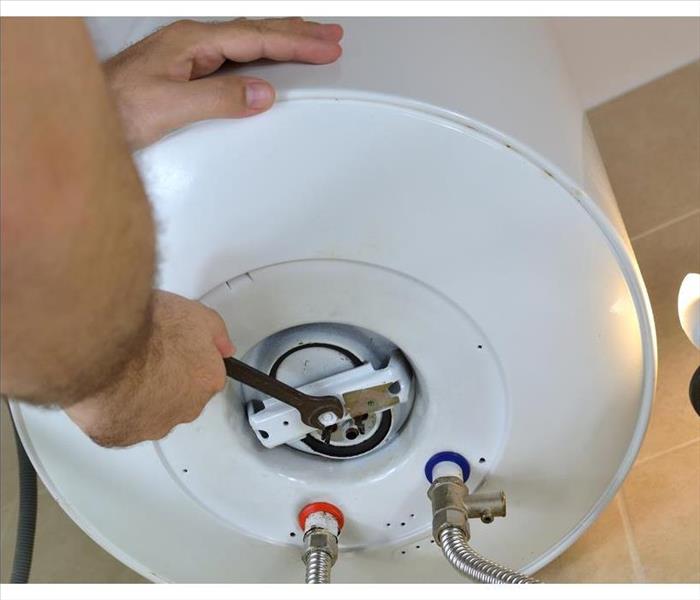The Basics of Flushing a Water Heater
3/10/2021 (Permalink)
Cars require regular maintenance to ensure optimum performance. In the same way, a water heater needs attention too. It is integral that you regularly flush yours. Over time, minerals settle out of the liquid, causing sedimentation. This can in turn lead to negative effects like lower efficiency and a shorter lifespan. Pipes can burst, creating a huge mess you need a professional cleanup and restoration company in Centre City, CA, to handle. If the deposit at the bottom of said containers calcifies, it may become near impossible to remove, rendering replacement necessary. To avoid this, you can perform a flush yourself or hire someone else to.
What Are the Steps for Flushing One?
There is a specific set of instructions you should follow when doing a water heater flush:
- Turn off the heater's power source (gas or electric), giving said heater time to cool off.
- Turn off the water supply
- Connect a hose to the drain valve, making sure the outlet is in an appropriate discharge area, and open said valve, allowing the water to gush out.
- Cut on a nearby hot water faucet to prevent vacuum formation and improve drainage.
- Reopen the water supply for flushing, turn it off and turn it on again. Repeat until all particulate matter is gone.
- Close the drain valve, refill by turning on the water supply and cut the heater back on.
What Are Signs One Needs To Be Flushed?
Some indications that your water heater needs to be flushed include lukewarm water, strange sounds and sludge coming out of your faucets. Banging, popping or cracking noises, temperature fluctuations and low pressure from the hot water tap are often caused by residue accumulation in the tank.
How Often Should a One be Flushed?
Opinions on this vary. However, a minimum of once a year is a good rule of thumb. You can do it once every six months if you want to be thorough.
Even if your water heater is not a tank one, it is vital that you clean it since it will also acquire buildup over time. Proper care can help avoid potential consequences and save you a great deal of money.






 24/7 Emergency Service
24/7 Emergency Service
